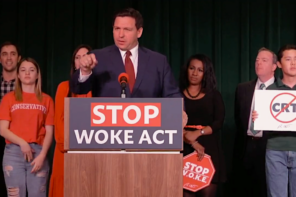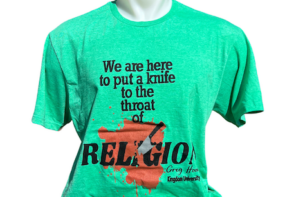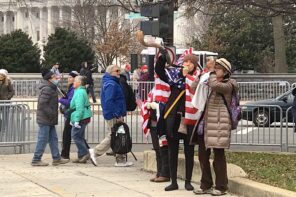Today marks the one-year anniversary of the murder of Ugandan gay-rights advocate David Kato, 46, who was killed after months of right-wing threats; most notably being featured on the front page of a Ugandan right-wing newspaper. This anniversary should remind us of some important lessons.
First, right-wing rhetoric leads to right-wing violence. Kato’s murder comes the same week as yet another LGBT suicide, this time of 14-year-old Philip Parker, a victim of bullying in his school in Tennessee. In both cases the religious and political sources of hateful rhetoric have deplored, condemned, and above all distanced themselves from these horrible and unexpected tragedies.
Which is, in industry parlance, bullshit. Preachers preach because they hope people will take their words seriously, including words like “unnatural” and “abomination” (both mistranslations of biblical text that are themselves hate speech). Pundits hope their words will be heard. And the American religious activists who spread their hate in Uganda, together with the newspaper publishers who literally marked Kato for death, hope that their efforts bear fruit. To subsequently deny any responsibility for the inevitable consequences of their hate speech is itself morally reprehensible. Of course, the bullies and assassins don’t have the same views as their instigators. But they are inspired by them, and it is inevitable that they will be.
Second, “gay rights” is a global concern, and lives are indeed in the balance. Marriage celebrations in New York and Washington DC may seem banal, and may give the impression that LGBT equality is no big deal or of interest only to conventional white folks who want to get married. This is not so. LGBT homeless youth in American cities, transgender and gender-nonconforming people under constant threat of violence, and LGBT people in places like Uganda, where the mere disclosure of one’s sexuality brings state-sanctioned and often family-executed violence, are at real risk. Sexual diversity is not an American issue, or a middle-class one, or a white one. Sexual and gender minorities are at risk everywhere—in fact, especially when they aren’t white, middle-class Americans.
Third, and relatedly, LGBT equality is a (I won’t say the) defining civil rights issue of our time. This is not because LGBT people are at more risk than, say, undocumented immigrants, or that our struggle for equality is more compelling than that of the Arab Spring. Rather, LGBT issues are a way in which we in America and around the world are defining ourselves and living out (or not) our deepest values. Are those values ones of hidebound traditionalism, regardless of the consequences to human beings? Or are they compassion and honesty, even if our integrity and lovingkindness demands a fresh reengagement with opinions of which we once were certain? For better or for worse, this is the litmus test of how human we dare to be.
For these three reasons, and on this anniversary day. I want to put forward an immodest proposal that some LGBT activists have been speaking about at the ‘Creating Change’ conference, the largest LGBT national gathering this year taking place in Baltimore this weekend: It’s time for the Nobel Prize Committee to recognize the global and urgent nature of the struggle for LGBT equality, and award the Nobel Peace Prize to those who have made it their lives’ work.
Two leading candidates for consideration: Frank Mugisha and Kasha Jacqueline Nagabesera, two Ugandan LGBT activists who have risked their lives to advance the cause of freedom, in one of the most hostile societal contexts on Earth. Pushed by American far-right activists, the Ugandan legislature continues to debate laws that would punish being gay by death. These heroes’ lives often resemble a nightmare. They are afraid to go out in public, afraid to eat in restaurants (for fear of being poisoned), afraid that at any moment, Kato’s fate may become their own.
Like many recent Nobel laureates, these are activists in the middle of the fray, actively risking their lives. Recognition by the Nobel committee would protect them, and affirm that LGBT equality is truly a global issue that defines our times. Nominations close at the end of January. Today’s tragic anniversary should spur the committee to act.




